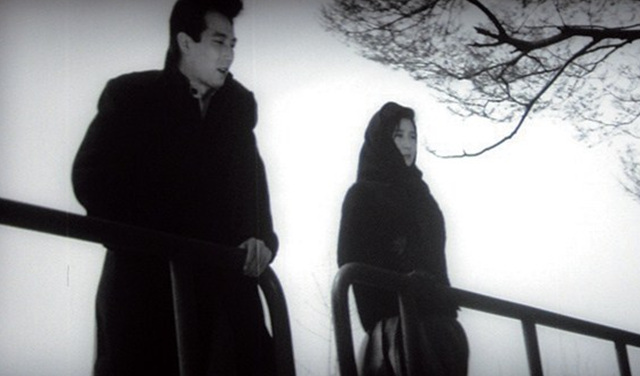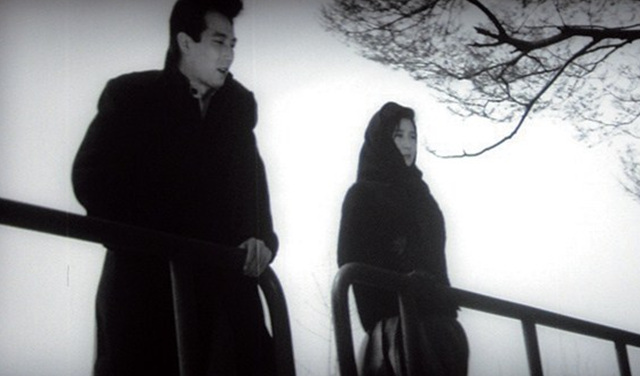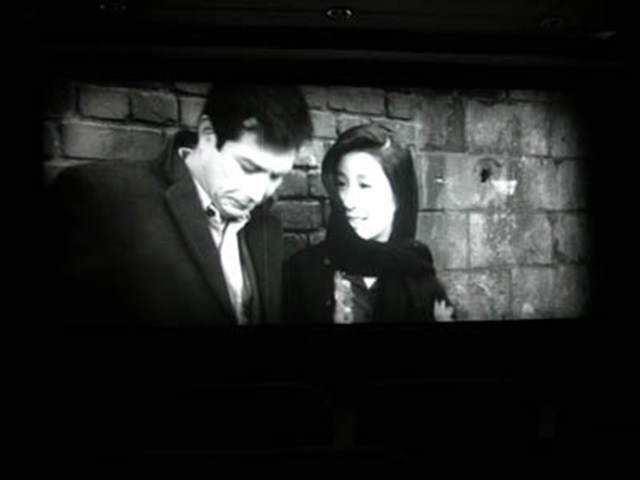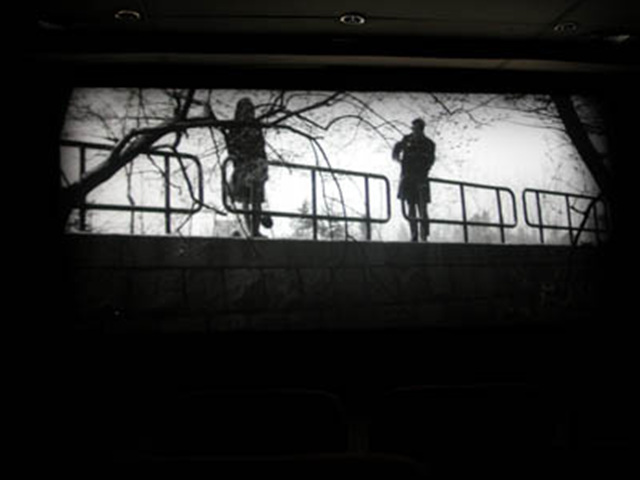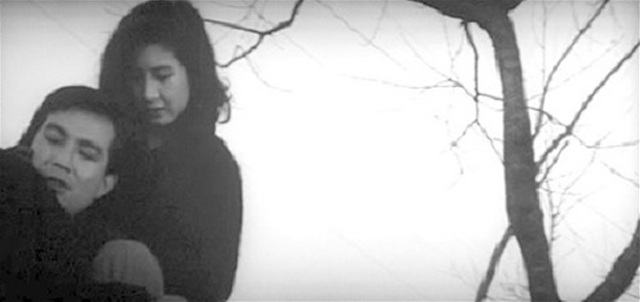13th(2011)
- Opening Film (1)
- New Currents (18)
- Asian Spectrum: Chinese Women’s Cinema in the New Century (6)
- Polemics: The Places (8)
- Ani-x: Dream, Mind and Reality in Animation (36)
- Korean Cinema Retrospective: Seoul Flâneuses (10)
- Queer Rainbow: the Q word (7)
- Open Cinema (4)
- Asian Short Film & Video Competition (16)
- Dacumentary Ock Rang Award (1)
- Media Workshop for Women Migrants: Salad Woman with a Camera of Hope (8)
Holiday
LEE Man-hee
- Korea
- 1968
- 73min
- 35mm
- black and white
- 드라마
SYNOPSIS
Synopsis
Huh-wook, who cannot afford to start a family goes off to meet his friends to get money for an abortion for Jee-yeon who is carrying his baby, but ends up stealing from a friend. Huh-wook leaves her the hospital and has a drink in a salon. Completely intoxicated, Huh-wook makes love in a construction site but comes to his senses at the sound of church bells.
Program Note
There are two films with the title “holiday”. However Holiday in Seoul (1956) and Holiday (1968) describe two very different holidays. If Holiday in Seoul shows hopeful aspects in Seoul through newlyweds, after 12 years later Holiday depicts depression of a young man whose future seems hopeless. Main characters of this film, Huh-wook and Ji-yeon are a couples hanging around the park since they do not even have the money to drink a cup of coffee in a coffee shop. These two people, who couldn’t see a future together even though Ji-yeon is pregnant, heads over to the hospital to get an abortion. Huh-wook, who tries to get the money to pay for the medical bills, leaves Ji-yeon at the hospital. He steals the money from his friend Gue-jei but he ends up at a bar seducing a random woman. Huh-wook was going to have sex on an impulse but becomes conscious of his immoral behavior when he hears the sound of church bells and he rushes to the hospital. However, when he arrives Ji-yeon is already dead. Huh-wook gets on the train covered in blood having been severely beaten up by Gue-jei who ends up finding him. When he gets off at the last stop, he decides to get himself a tonsure.
The view of the deserted park, the tangled street of teahouses, saloons in which anxiety and decadent lure coexist in, and a construction site that looks like ruins are the metaphors used in the film to portray the hopelessness that exist in the innermost part of the young people in the film. At the same time this film describes brutality of the city which drives them into a blind alley. The original purpose of this film was to have the movie start with fishing up the corpse of Huhwook, and develop the story with narrations of the dead person, and finishes with the decayed corpse demonstrating that the scenes of desolation and despair in Seoul are metaphoric expressions of the social irrationalities and violent oppressions. Neurosis of the censorship authorities on embarrassing matters of the society prohibited the screening of this film even after having cut the scenes of the corpse at the beginning and at the end of the movie. The audience could now only meet this film after over 30 years since its production. (LEE Gil-sung)
PROGRAM NOTE
Synopsis
Huh-wook, who cannot afford to start a family goes off to meet his friends to get money for an abortion for Jee-yeon who is carrying his baby, but ends up stealing from a friend. Huh-wook leaves her the hospital and has a drink in a salon. Completely intoxicated, Huh-wook makes love in a construction site but comes to his senses at the sound of church bells.
Program Note
There are two films with the title “holiday”. However Holiday in Seoul (1956) and Holiday (1968) describe two very different holidays. If Holiday in Seoul shows hopeful aspects in Seoul through newlyweds, after 12 years later Holiday depicts depression of a young man whose future seems hopeless. Main characters of this film, Huh-wook and Ji-yeon are a couples hanging around the park since they do not even have the money to drink a cup of coffee in a coffee shop. These two people, who couldn’t see a future together even though Ji-yeon is pregnant, heads over to the hospital to get an abortion. Huh-wook, who tries to get the money to pay for the medical bills, leaves Ji-yeon at the hospital. He steals the money from his friend Gue-jei but he ends up at a bar seducing a random woman. Huh-wook was going to have sex on an impulse but becomes conscious of his immoral behavior when he hears the sound of church bells and he rushes to the hospital. However, when he arrives Ji-yeon is already dead. Huh-wook gets on the train covered in blood having been severely beaten up by Gue-jei who ends up finding him. When he gets off at the last stop, he decides to get himself a tonsure.
The view of the deserted park, the tangled street of teahouses, saloons in which anxiety and decadent lure coexist in, and a construction site that looks like ruins are the metaphors used in the film to portray the hopelessness that exist in the innermost part of the young people in the film. At the same time this film describes brutality of the city which drives them into a blind alley. The original purpose of this film was to have the movie start with fishing up the corpse of Huhwook, and develop the story with narrations of the dead person, and finishes with the decayed corpse demonstrating that the scenes of desolation and despair in Seoul are metaphoric expressions of the social irrationalities and violent oppressions. Neurosis of the censorship authorities on embarrassing matters of the society prohibited the screening of this film even after having cut the scenes of the corpse at the beginning and at the end of the movie. The audience could now only meet this film after over 30 years since its production. (LEE Gil-sung)
Director
-
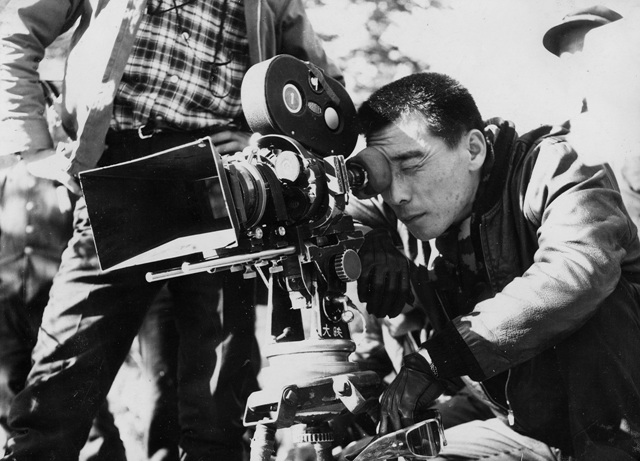
LEE Man-heeLEE Man-hee
Born in 1931, LEE Man-hee studied directing under AHN Jong-hwa, PARK Gu and KIM Myung-jae, and made his debut film Kaleidoscope (1961). He showed his outstanding ability in directing through Marines Are Gone (1963). LEE had to make a way to the court due to his problematic film The Seven Female POW’s (1965). His career hit its climax with yet another film Full Autumn (1966). In the later years, his taste moved from situation-centered world view with much suspense toward a meditative one overcoming differences in ideology.
Credit
- ProducerHONG Ui-sun
- Cast SHIN Seong-il, JUN Ji-yeon, KIM Sung-ok
- Screenwriter BAEK Kyeol
- Cinematography LEE Seok-Ki
- Art director JUNG Su-pan
- Editor HYUN Dong-chun
- Music JEON Jung-geun
- Sound JUNG Su-pan

